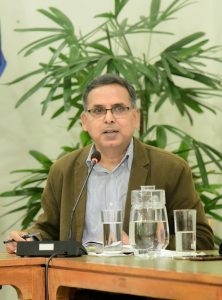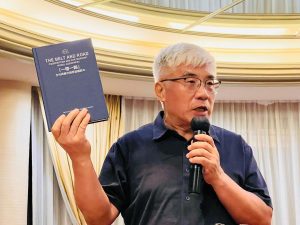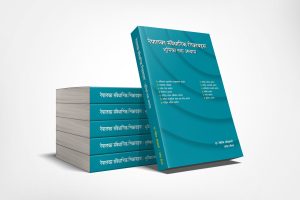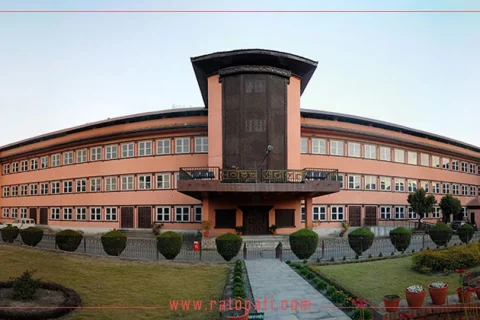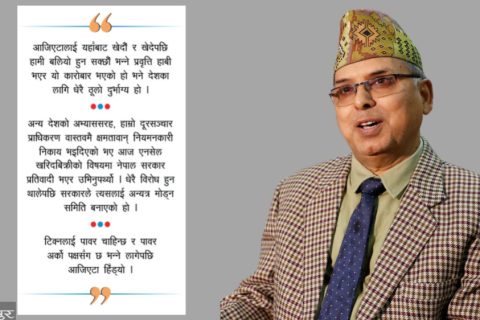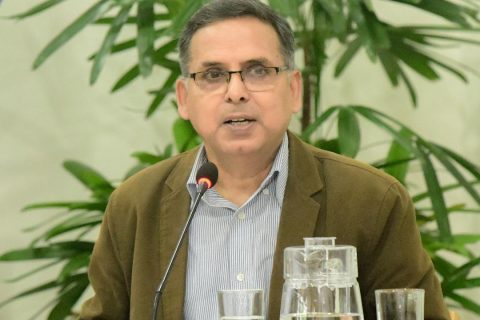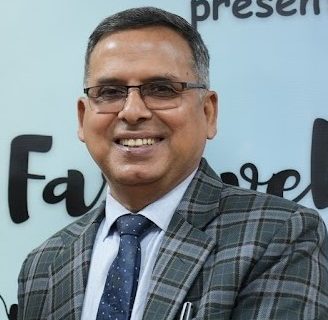The United Kingdom Supreme Court Annual Report and Accounts 2009–2010 published last year has enlisted the summary of numerous high profile cases decided since its establishment on 1 October 2009. The report was presented to Parliament pursuant to section 54(1) of the Constitutional Reform Act 2005. The report covers establishment of the Court; mission and strategy objectives; jurisdiction and casework; appointment of justices; transparency and openness; a court on an international stage; corporate services; management commentary; and the accounts. The President of the Supreme Court Lord Phillips has noted in the report that “the creation of the Supreme Court marked the end of hundreds of years of judicial work conducted by the House of Lords. We are proud of that heritage and, in approaching the way we work in the Supreme Court, have sought to maintain elements of continuity with practice in the House of Lords.”
Her Majesty’s Treasury v Mohammed Jabar Ahmed and others [2010] UKSC 2: In response to incidents of international terrorism, including the 9/11 attacks in New York, the United Nations Security Council passed various resolutions requiring member states to take steps to freeze the assets of Usama Bin-Laden, the Taliban, their associates and those involved in international terrorism.
In the first substantive case to be heard by the Supreme Court, its Justices heard challenges to the legality of the Terrorism (United Nations Measures) Order 2006 and the Al-Qaida and Taliban (United Nations Measures) Order 2006.
The appeals to the Supreme Court were started by persons whose assets had been frozen as a result of two Orders made by Her Majesty’s Treasury, either because their names were included in a United Nations list of associates of Usama Bin-Laden or as involved in international terrorism, or because they were reasonably suspected of involvement with international terrorism. The appellants complained that the measures gravely interfered with their fundamental rights, including the right of access to a court and that HM Treasury did not have the power to make the Orders.
The Supreme Court quashed the Terrorism Order and part of the Al-Qaida Order which had been made without any Parliamentary scrutiny. It ruled that the United Nations Act 1946 used by the Treasury to make the Orders was not intended to be used to introduce coercive measures which interfered with UK citizens’ fundamental rights. The Supreme Court emphasised that in quashing the Orders it was not interfering with the will of Parliament. Its judgment was based on the fundamental principle that it was for Parliament to approve these measures if necessary.
An application by the media to lift the anonymity granted to the appellants in the lower courts was successful. See Application by Guardian News and Media Ltd and others in Her Majesty’s Treasury v Mohammed Jabar Ahmed and others [2009] UKSC 1. The Court agreed that identification would stimulate informed debate about the use of asset freezing orders.
R (on the application of E) v The Governing Body of JFS & Others [2009] UKSC 15:
An appeal heard at the end of the Supreme Court’s first month attracted considerable media attention. A procedural hearing in this case took place on 1 October 2009, making it the first hearing of the UKSC. E challenged the refusal of a Jewish faith school, JFS, to admit his son, M, as a result of an oversubscription policy that gave preference to children recognised as Jewish by the Office of the Chief Rabbi. Such children were either descended in the matrilineal line from a Jewish woman or had undertaken a course of Orthodox conversion. M’s mother was neither Jewish by birth or by Orthodox conversion. E and M were however practising Jews and M’s mother had undertaken a non-Orthodox conversion to Judaism.
E claimed that the admissions policy of JFS discriminated against M directly or indirectly on the grounds of his ethnic origins contrary to section 1 of the Race Relations Act 1976.
Sitting as a nine judge court, the Supreme Court (by a majority of five to four) agreed with the Court of Appeal that JFS had directly discriminated against M. It held that if, as here, a person’s ethnic origins were the reason for the decision made, then the motive for the discrimination was irrelevant. The fact that the rule adopted by the school was of a religious character could not obscure or alter the fact that the son had been discriminated against on ethnic grounds. The option of undergoing conversion itself constituted a significant and onerous burden not required of those born with the requisite ethnic origins.
In Re B (A Child) [2009] UKSC 5: This appeal concerned a three year old boy whose parents had separated before his birth. He had lived throughout his life with his maternal grandmother. The boy’s father sought an order that the child live with him and his new wife. Justices in the Family Proceedings Court had taken a decision not to disrupt the continuity of care which the boy had received and ruled that he should remain with his grandmother. This decision was overturned in the High Court and Court of Appeal, relying on the words of Lord Nicholls in Re G (Children) (Residence: Same Sex Partner) [2006] 1 WLR 2305 that ordinarily the rearing of a child by his biological parent could be expected to be in his best interests.
The Supreme Court restored the decision in the grandmother’s favour, holding that Re G had been misinterpreted. The paramount consideration in the determination of a child’s residence was his welfare. Lord Nicholls’ words merely reflected the common experience that in general children tend to thrive when brought up by the parents to whom they had been born. Discussion of a child’s right to be brought up by his natural parents was misplaced and detracted from the only consideration for the Court, namely his welfare.
R v Horncastle and others [2009] UKSC 14: On 9 December 2009, the Supreme Court dismissed an appeal relating to the admission of hearsay evidence in criminal trials. In so doing it did not follow a recent decision of the European Court of Human Rights (ECHR) in Strasbourg, which had held that convictions based solely or to a decisive extent on the evidence of witnesses that were not available for cross-examination in court breached the right to a fair trial guaranteed by Article 6 of the European Convention on Human Rights.
The Supreme Court unanimously held that courts take into account any judgment of the Strasbourg court in relation to the evidence of witnesses unavailable for cross-examination. However on rare occasions, such as R v Horncastle and others this did not mean a breach of Article 6.
The Court expressed concerns that the decision of the Strasbourg court had not sufficiently appreciated or accommodated particular aspects of the UK trial process and the safeguards in the statutory scheme. The ECHR decision had not fully considered whether it was justified to impose the rule equally on common law and continental jurisdictions and it would create severe practical difficulties if applied to English criminal procedure.
Martin v Her Majesty’s Advocate (Scotland); Miller v Her Majesty’s Advocate (Scotland) [2010] UKSC 10: Towards the end of 2009 the Supreme Court heard the first case in which it considered the validity of Scottish legislation. The appellants in these cases challenged the imposition of sentences of imprisonment under section 45 of the Criminal Proceedings etc (Reform)(Scotland) Act 2007 for the offence of driving while disqualified. These sentences were higher than those they would have received on summary conviction under the formerly applicable Road Traffic Offenders Act 1988. The appellants argued that section 45 of the 2007 Act went outside the legislative competence of the Scottish Parliament.
Justices at the Supreme Court by a majority of three to two held that section 45 of the 2007 Act was directed to a rule of Scots criminal law and within the legislative power of the Scottish Parliament. The change in the law only related to the procedure which determined whether the sentence could be imposed summarily by the Sheriff and did not affect the overall maximum sentence special to the 1988 Act. The increase in sentences for specific road offences was not reserved to Westminster (within the meaning of section 29 of the Scotland Act 1998).
Re W (Children) [2010] UKSC 12: On 3 March 2010, the Supreme Court handed down judgment in an urgent appeal, relating to the evidence of children in court proceedings. Judgment was given one day after the case was heard at the Supreme Court and in time for a fact-finding hearing for care proceedings concerning a family of five children. At issue was the decision of the trial judge to refuse the father’s application to have live evidence called (by video link) from his 14 year-old step-daughter, whose allegation of sexual abuse against him had led to the children being taken into care.
The Supreme Court found that the current law erected a presumption against a child giving live evidence in family proceedings. This could not be reconciled with the approach of the European Court of Human Rights, which sought to strike a balance between the right to a fair trial and the right to respect for private and family life. The essential test was whether justice could be done to all the parties without further questioning of the child. As the judge in this case had started from the wrong point, the question was remitted to her to decide at the start of the fact finding hearing the following week.


